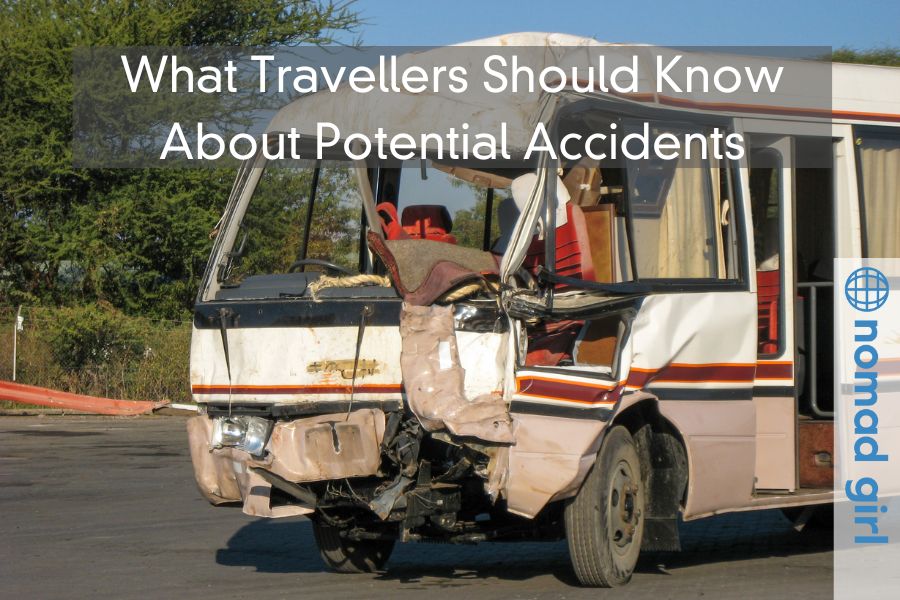Travelling can be one of the most enriching experiences in life, exposing individuals to new cultures, stunning landscapes, and unforgettable adventures.
However, amidst the thrill of exploration, the potential for accidents can occur, ranging from minor mishaps to serious incidents.
Understanding the various types of risks associated with travel and being prepared can help mitigate these dangers, ensuring a safer journey.
This section aims to provide essential insights into the common types of accidents travellers may face, the importance of preventative measures, and what to do in case of an emergency.
By being informed, travellers can focus on enjoying their adventures while minimizing the risks.
Types of Travel Accidents
When travelling, it’s crucial to be aware of the various types of accidents that can occur, which can vary depending on the destination and mode of transportation.
Common accidents include vehicle collisions, slips and falls, food poisoning, and natural disasters. Each of these incidents can result in injury, illness, or significant disruption to a travel itinerary.
For instance, vehicle accidents, whether in a rented car or as a passenger in a taxi, can range from fender benders to serious collisions, often exacerbated in countries where road rules differ significantly from one’s home country.
Some car accident lawyers may advise travellers to familiarize themselves with local driving laws and avoid reckless drivers. Similarly, slips and falls can happen anywhere, from uneven sidewalks to slippery hotel floors.
Food poisoning is also a prevalent issue for travellers, especially when consuming unfamiliar foods or drinking contaminated water. Natural disasters such as hurricanes, earthquakes, or wildfires can also occur unexpectedly, disrupting travel plans and posing significant safety risks.
Prevention Strategies
To minimize the risks associated with travel accidents, adopting a proactive approach is key. Before departure, travellers should conduct thorough research on their destination, including the healthcare facilities, emergency contacts, and local laws.
Acquainting oneself with common safety issues, such as areas to avoid or local wildlife hazards, can significantly improve safety during the trip.
Additionally, packing a well-equipped travel first-aid kit can help address minor injuries quickly, preventing complications that could arise from untreated conditions. While in transit, employing precautionary measures can further enhance safety.
What to Do in Case of an Emergency
In the unfortunate event of an accident, knowing how to react can be crucial. The first step is to assess the situation and ensure personal safety before acting.
If injuries are sustained, seeking medical attention should be the top priority. This may involve calling local emergency services or travelling to the nearest hospital, which is why having a list of local emergency numbers and healthcare facilities at hand is always beneficial.
Additionally, keeping a copy of travel insurance documents and any relevant medical history can expedite treatment if necessary.
In case of minor incidents, treating the injury on-site may be sufficient. Cleaning and dressing wounds can prevent infections, while ice can reduce swelling from sprains or strains.
It’s important to stay calm and, if possible, inform travel companions of the situation to ensure help and support are available.
Documenting the incident—taking photos, gathering witness statements, or filing reports with authorities—can also be essential for later insurance claims or legal needs, providing a comprehensive record of what occurred.
The Importance of Travel Insurance
Travel insurance serves as a crucial safety net for travellers, offering financial protection against unforeseen circumstances such as trip cancellations, medical emergencies, or lost belongings.
Investing in a good travel insurance policy can alleviate some of the financial burdens that may arise from accidents or emergencies while abroad.
Policies often cover a variety of incidents, which can be vital for a traveller in a foreign country where local healthcare expenses can be exorbitant.
When selecting travel insurance, it’s essential to read the fine print and understand what is covered.
Driving in a foreign country can be vastly different from one’s home country, which can pose unique challenges to travellers.
It is vital to understand local driving laws, sign interpretations, and road conditions before hitting the road.
Some countries may have specific rules, such as driving on the opposite side of the road, which can be disorienting for those accustomed to a different system.
Familiarity with local customs surrounding vehicles, including the right of way and pedestrian behaviour, can further contribute to road safety.
Utilizing navigation technology and planning routes in advance can help minimize risks associated with wayfinding in unfamiliar areas.
Additionally, ensuring that the vehicle is in good condition—checking the brakes, tires, and lights—can prevent accidents stemming from mechanical failure.
For those not comfortable driving in a new environment, relying on local public transportation, taxis, or guided tours can provide a safer alternative, allowing travellers to enjoy their experience without the added stress of navigating complex road systems.
Natural Disaster Preparedness
Travellers must be aware of the natural disaster risks associated with their destinations, ranging from hurricanes and earthquakes to floods or wildfires.
Researching the likelihood of such events and the safety measures in place is crucial for ensuring preparedness.
Different regions follow varying protocols and warnings, and understanding these can be lifesaving during emergencies.
Travellers should familiarize themselves with local alerts and understand the quickest routes to safe locations.
In regions prone to natural disasters, having an emergency plan in place is vital. This may include knowing where to find shelter, keeping essential supplies handy, and ensuring communication devices are charged and operational.
Having travel insurance that covers natural disasters can further ease concerns, allowing travellers to focus on enjoying their adventures while being prepared for unexpected situations.
Lastly, maintaining a flexible travel itinerary may enable changes to plans when weather warnings or natural events threaten safety.
Staying Informed
Staying informed about current travel advisories, local news, and potential risks is essential for every traveller.
Government websites, like those from the Centers for Disease Control and Prevention (CDC) or the U.S. State Department, provide valuable insights into health and safety concerns, allowing travellers to make educated decisions before and during their trips.
Following local news outlets can also help travellers stay ahead of potential risks, from political unrest to natural disasters, ensuring that they remain informed.

In conclusion, while travel can be an exhilarating and transformative experience, travellers need to remain vigilant and prepared for any potential accidents that may arise. By understanding the types of risks involved, implementing preventive strategies, and knowing how to respond in case of emergencies, travellers can significantly enhance their safety and overall enjoyment of their journeys.
Equally important is the role of travel insurance and natural disaster preparedness, which together form a solid safety net. With the right knowledge and precautions in place, travellers can focus on creating lasting memories, immersing themselves in new cultures, and embracing the adventure that awaits them.


















